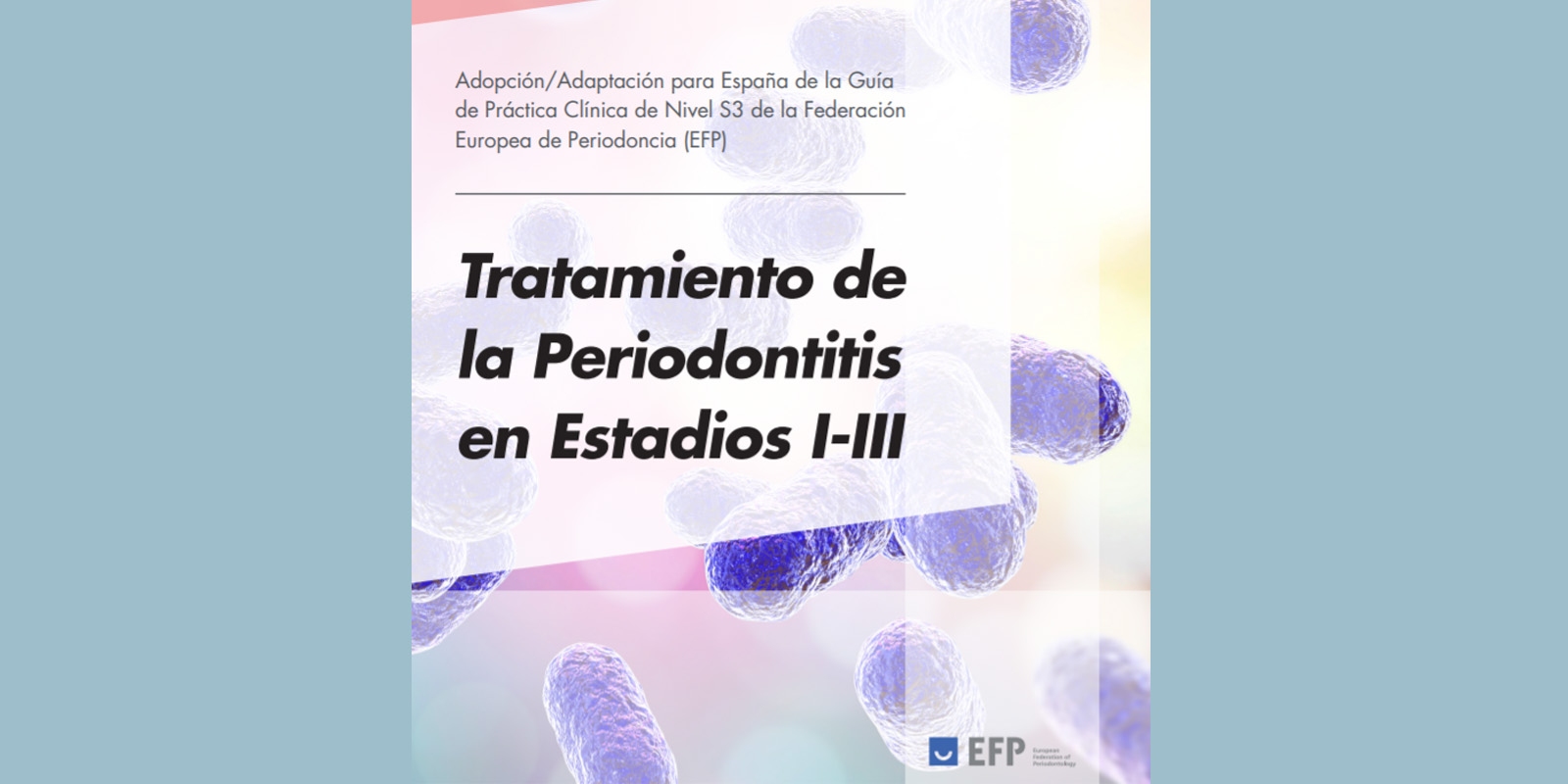DENTAID EXPERTISE
News for dentistry professionals
More training and outreach to fight the cardiovascular and periodontal disease combination
12 Apr 2021

In recent years, not only has there been a notable increase in scientific evidence revealing the close connection between cardiovascular and periodontal health, but information and training campaigns have also been reinforced in line with these findings. The objective is to raise awareness among the general population as well as dentists and cardiologists of this link and the benefit of acting jointly, in a coordinated manner.
More than 750 million people, representing over 11% of the world’s population, suffer from advanced periodontitis, an infection of the gums that damages soft tissues and may lead to loss of teeth. The infection and inflammation inherent in periodontitis affect the body directly or indirectly, and may increase the risk of developing systemic disorders, such as cardiovascular disease.
Until recently, most of data available on the relationship between periodontitis and cardiovascular disease was drawn from observational studies, but did not provide a clear causal link between them, nor did it explain the direct mechanisms of the association or the possible implications for the prevention and therapy for those affected by both conditions; on the other hand, new findings suggest that it is essential to include cardiologists in this critical evaluation of the scientific evidence linking these diseases, along with other implications.
It is currently understood that people with periodontal diseases have a greater risk of suffering cardiovascular disease, such as myocardial infarctions or strokes. This should lead us to a change of habits, as well as to reconsider prevention and treatment strategies in cardiovascular patients and in those with periodontal disease.
An effort that transcends borders
Recent initiatives such as the Perio&Cardio campaign, led by the European Federation of Periodontology (EFP) and the World Heart Federation (WHF), are part of this new reality. They aim to publicise the importance of avoiding risk factors such as smoking, a sedentary lifestyle, being overweight, high blood pressure, and diets high in saturated fats and refined sugars. In addition, attention is drawn to the fact that patients suffering from periodontitis and cardiovascular disease at the same time may be at increased risk of systemic complications, so maintaining good oral health and having regular check-ups is essential.
The Perio&Cardio programme, which enjoys the support of oral health specialist company DENTAID and the Spanish Society of Periodontology–SEPA, is a global education campaign that includes guidelines, documents, infographics, and other materials addressed to dentists, cardiologists, physicians, pharmacists and the general public to raise awareness of the impact of gum disease and its possible impact on cardiovascular disease.
All the campaign material is derived from the scientific report Periodontitis and cardiovascular diseases published in the EFP’s Journal of Clinical Periodontology, summarizing the results of the Perio-Cardio Workshop held in Madrid in 2019, and which brought together 20 world-renowned periodontology and cardiology experts.
“Most people are unaware of the increased risk of heart disease associated with poor periodontal health,” explains Jean-Luc Eiselé, CEO of the World Heart Federation (WHF). “This project aims to raise awareness of this important link, not just among the general public but also among nurses, dentists, cardiologists, and other medical professionals who play a key role in managing risk factors for heart disease in their patients.”
For his part, the President of the EFP, Xavier Struillou, recalls that “the partnership with the WHF for this joint project is a qualitative step for us, given the leadership of the WHF in heart and cardiovascular diseases and its global reach. Perio&Cardio reinforces the leadership role that EFP is playing in its quest for periodontal health for a better life everywhere.”
In this regard, Dr Joan Gispert, director of R&D+i at DENTAID underlines the importance of cooperation to improve prevention, “since we consider it essential to make society aware of the close link there is between oral and general health. The mouth is not an isolated system, and any condition there has repercussions on the general state of health. That is why this campaign is so important; it explains the importance of prevention and treatment, because if we take active care of the health of our gums, we are at the same time helping to take care of our cardiovascular health.”
Specifically, regarding the impact that the prevention and treatment of periodontal diseases has on cardiovascular risk, the president of SEPA, Dr Antonio Bujaldón, affirms that “if you care for the oral health of your patients, you will be improving their general health and helping them live longer and in better conditions.” As general advice, this expert recalls that adopting measures at the dental clinic like simply “taking patients’ blood pressure and identifying those at risk of diabetes or with diagnosed diabetes can be of vital importance.”
Training for the oral and dental team
The Spanish Society of Periodontology has collaborated in recent years in numerous initiatives aimed at demonstrating and raising awareness of the general population of the fact that “oral health is essential for general health and quality of life,” says Dr Bujaldón.
In this regard, the recently held Aula DENTAID sessions stand out, with cardiologists and periodontists participating in the “Improving the cardiovascular health of patients at the dental clinic” webinar series, a training programme addressing health professionals, exchanging procedures on how to act with patients showing periodontal or cardiovascular risk.
These virtual sessions have been seen over 7,000 times by specialists in different disciplines: dentists, hygienists, cardiologists and others, from all over the world. The objective of these webinars is to convey the importance of gum health for cardiovascular health, to foster cardiovascular health at the dental clinic, and how dentists and cardiologists should relate to one another when patients are at risk of suffering a cardiovascular event or who have already suffered one.
In the Essential Concepts course, stomatology specialist Dr Blas Noguerol stated that “periodontitis can be a trigger for cardiovascular disease and increases the risk of suffering a myocardial infarction.” In the same vein, Dr Nuria Vallcorba, DDS and cardiologist Dr David Vivas made a presentation in the Preventing Complications course detailing symptoms that those presenting cardiovascular risk may show, in which they provided insight with practical advice applicable in the clinic to prevent complications.
In the Putting it into Practice at the Clinic session, periodontists Ana Molina and Miguel Carasol, alongside cardiologist María Molina, brought to light the link between oral and cardiac health, which involves a close relationship between the professionals of both specialisations. They underlined the need to establish a simple protocol for dental clinics to detect systemic risk. Ultimately, the experts pointed out that adopting simple measures such as “taking blood pressure and identifying individuals at risk of diabetes or with diagnosed diabetes can be of vital importance.”
In general, stomatology and periodontics specialist Dr Miguel Carasol, who together with Dr Juan José Gómez Doblas was one of the scientific coordinators of this training initiative, recalled that “oral health is a determining factor in people’s general health, and oral health care is an important instrument to foster health in our societies, especially at times like today.”
Without a doubt, it is time for action in cardiovascular and periodontal health, based on better training and more information.
RELATED ARTICLES

17 Feb 2022
EuroPerio Series: professional discussions and scientific exchange
To keep the global perio community up to date with the latest research findings as well as give a taster of what is to come at EuroPerio10, the…

21 Jan 2022
Xerostomia in COVID-19 positive patients: clinical considerations
Severe Acute Respiratory Syndrome Coronavirus 2 (SARS-CoV-2) the cause of the pandemic known as COVID-19, affects different organs and systems (lungs,…

20 Jan 2022
A guide adapted to Spain to optimise the approach to periodontitis
There are currently numerous clinical practice guidelines to direct the treatment of many systemic diseases (such as diabetes, depression,…
Sign up for the DENTAID Expertise newsletter
Sign up for the newsletter